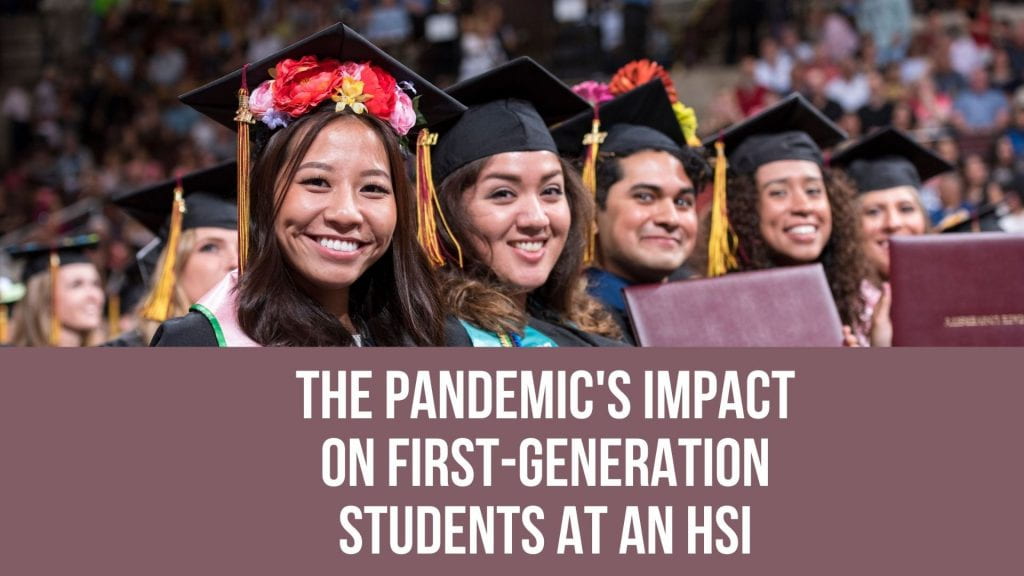
First-generation students face many challenges in the transition to college; a pandemic only complicates them. A recent study–“Assessing the Needs and Experiences of First-Generation Students’ Transition to Remote Learning Due to COVID-19 Pandemic at a Hispanic Serving Institution” published in the Hispanic Educational Technology Services Online Journal–analyzed the impact on learning and challenges that first-generation students faced at Texas State University when they transitioned to online classes caused by the pandemic. The research team included Dr. Gloria P. Martínez-Ramos (professor in the Sociology Department, Director of the Center for Diversity and Gender Studies, and Director of the Latina/o Studies minor), Dr. Victoria A Black (Associate Dean of Student Services in the University College), and Ms. Sylvia T. Gonzales, M.Ed. (Director of the Texas State University HSI STEM Impact Program). The article reports some of the findings from a committee formed to conduct an assessment of the consequences of the unanticipated and rapid move to remote learning after the uncertainty of the COVID-19 pandemic in March 2020. The team surveyed 1,318 students to determine their attitudes, perceptions, and experiences. The results showed that first-generation students’ academic learning environments were negatively impacted by the pandemic. Many did not have access to technology and faced communication or miscommunication problems with faculty when transitioning to remote learning. Furthermore, their financial situation and psychological well-being became worse. There is a need to prioritize resources to support student success generally, and first-generation success specifically. The team recommended that faculty and staff assist in supporting first-generation students at Texas State.
